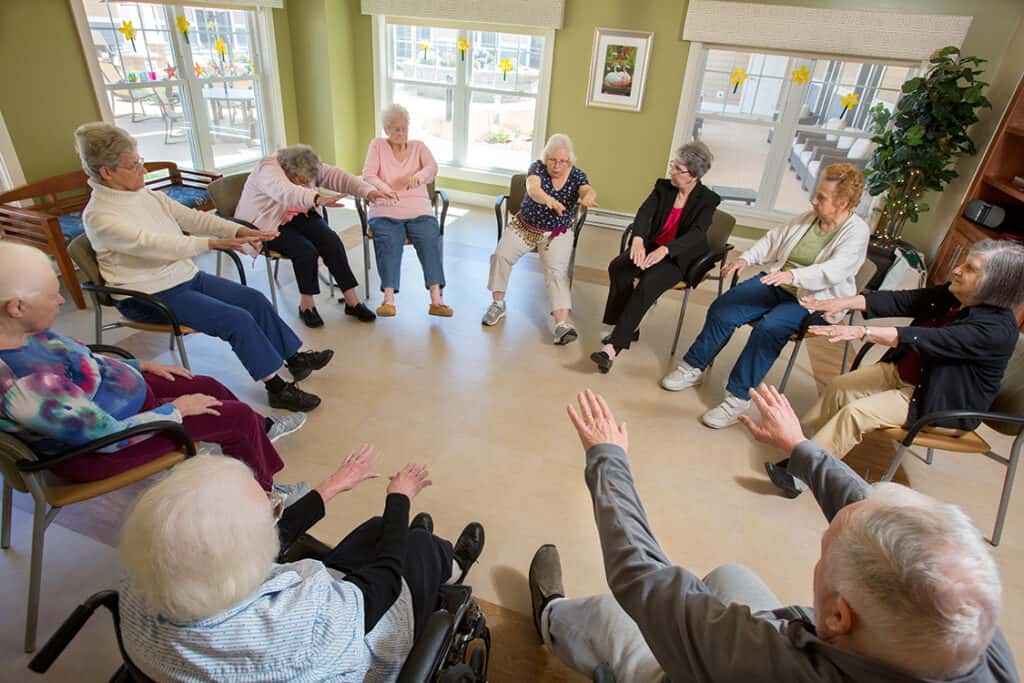Discover the reasons of Assisted Living for seniors needing extra help.
Discover the reasons of Assisted Living for seniors needing extra help.
Blog Article
The Role of Assisted Residing In Offering Specialized Take Care Of Dementia Sufferers
The arrangement of specialized care for mental deterioration individuals within assisted living facilities is significantly acknowledged as a vital part of efficient dementia monitoring. These settings are developed to address the one-of-a-kind cognitive and psychological challenges encountered by individuals with dementia, using tailored assistance that advertises safety and health.
Recognizing Dementia Treatment Needs
Understanding the care demands of people with mental deterioration is critical for giving reliable support and boosting their high quality of life. Mental deterioration is a modern neurological problem that affects cognitive features such as memory, reasoning, and interaction. Individuals with mental deterioration frequently need assistance with everyday tasks, personalized care strategies, and psychological support.
Efficient mental deterioration treatment involves acknowledging the one-of-a-kind challenges dealt with by each person. This consists of understanding the stages of mental deterioration, which can vary from light cognitive disability to innovative stages requiring detailed aid. Care needs may include assistance in taking care of day-to-day routines, medication adherence, and preserving social communications to avoid isolation.
Additionally, sensory stimulation and familiar atmospheres can dramatically boost the health of individuals with dementia. Caregivers must be trained to determine behavioral modifications and utilize approaches customized per individual's choices and previous experiences. Strategies such as recognition treatment and memory can aid connect properly and cultivate a complacency.
Eventually, effectively attending to the treatment needs of individuals with dementia calls for a compassionate technique, recurring training for caretakers, and a dedication to keeping self-respect and respect throughout the caregiving process.
Benefits of Assisted Living

An additional significant benefit is the safe and safe environment these facilities give. Locals profit from features such as protected entries and kept track of usual areas, minimizing the risk of straying and enhancing general safety and security. Assisted living advertises social interaction among homeowners, fostering a sense of neighborhood and belonging. Involving with peers can alleviate feelings of isolation, which prevail in those coping with dementia.
In addition, lots of assisted living centers supply aid with daily activities, such as medicine monitoring, showering, and dish preparation. This support permits homeowners to keep their freedom while ensuring their wellness and health are focused on. Inevitably, assisted living offers as a beneficial source, stabilizing care and autonomy for individuals with dementia and their families.

Specialized Programs and Activities
(Dementia Care Charlotte)Acknowledging the one-of-a-kind demands of people with mental deterioration, numerous assisted living facilities apply customized programs and tasks made to boost cognitive feature and advertise general wellness. These programs commonly consist of cognitive excitement activities that engage residents in memory video games, problems, and memory therapy, which encourages the sharing of personal tales and previous experiences.
Furthermore, art and music treatment play considerable roles in cultivating imagination and emotional expression (Memory Care). Engaging homeowners in painting, crafting, or songs sessions can supply therapeutic advantages, assisting to lower stress and anxiety and improve state of mind. Physical tasks, such as gentle workouts and dance sessions, are also crucial, as they advertise movement and physical wellness while motivating social communication amongst residents
Organized daily regimens are typically established to provide a feeling of stability and predictability for people with dementia. These regimens can consist of arranged meal times, team activities, and personalized treatment plans that deal with specific rate of interests and capacities. By creating an improving environment full of customized activities, helped living centers not just enhance the high quality of life for mental deterioration patients however additionally foster a sense of area and belonging.
Educated Staff and Support
(Charlotte Alzheimer's Care)In assisted living centers, the presence of experienced personnel is crucial for supplying effective assistance to individuals with mental deterioration. These professionals have specialized knowledge and abilities to address the special anchor needs of homeowners, ensuring their safety and security, comfort, and wellness. Employee obtain training in dementia care, which consists of comprehending the development of the disease, acknowledging behavior changes, and utilizing reliable communication methods.
Furthermore, qualified personnel are equipped to carry out personalized care strategies customized to each citizen's preferences and capacities. This personalized technique cultivates a sense of freedom and self-respect, allowing locals to engage in meaningful activities that improve their lifestyle. The team also play an important function in monitoring health and wellness and wellness, immediately recognizing any kind of adjustments in problem that might require medical attention.
Along with direct care, qualified staff offer emotional support to locals, assisting to ease sensations of complication and anxiousness that usually come with mental deterioration. Their thoughtful strategy develops a caring atmosphere where citizens feel valued and comprehended - Assisted Living. Ultimately, the competence and commitment of qualified staff are essential in delivering comprehensive treatment that fulfills the complicated requirements of individuals living with mental deterioration in assisted living setups
Household Involvement and Resources
Family participation plays a considerable function in the care of people with mental deterioration in nursing home. Engaging relative in the treatment procedure not only boosts the emotional well-being of the resident yet likewise fosters a joint setting where care plans can be customized to individual demands. Households can give useful insights right into the preferences, background, and behaviors of their enjoyed ones, which can notify caregivers and cause more individualized care strategies.
Furthermore, aided living facilities usually provide sources for households, such as assistance groups and instructional workshops. These resources can assist families comprehend mental deterioration, enhance interaction strategies, and establish coping mechanisms. Involvement in these programs can encourage member of the family, outfitting them with the tools essential to support their liked ones properly.
Additionally, routine interaction between family members and staff is important. This recurring dialogue enables family members to stay educated concerning their loved one's development and any kind of changes in care plans. Inevitably, a strong partnership between households and aided living centers fosters an environment of count on and understanding, making sure that people with mental deterioration receive the specialized care they are worthy of while preserving their household links.
Conclusion
Finally, helped living centers play a vital duty in attending to the unique needs of mental deterioration clients via individualized treatment and support. By promoting risk-free settings, promoting social interaction, and executing structured routines, these facilities enhance the overall well-being of residents. The participation of trained team and family members better improves the treatment experience, making sure that private preferences and histories are valued. Inevitably, assisted living supplies crucial sources that substantially enhance the lifestyle for those living with dementia.
Report this page